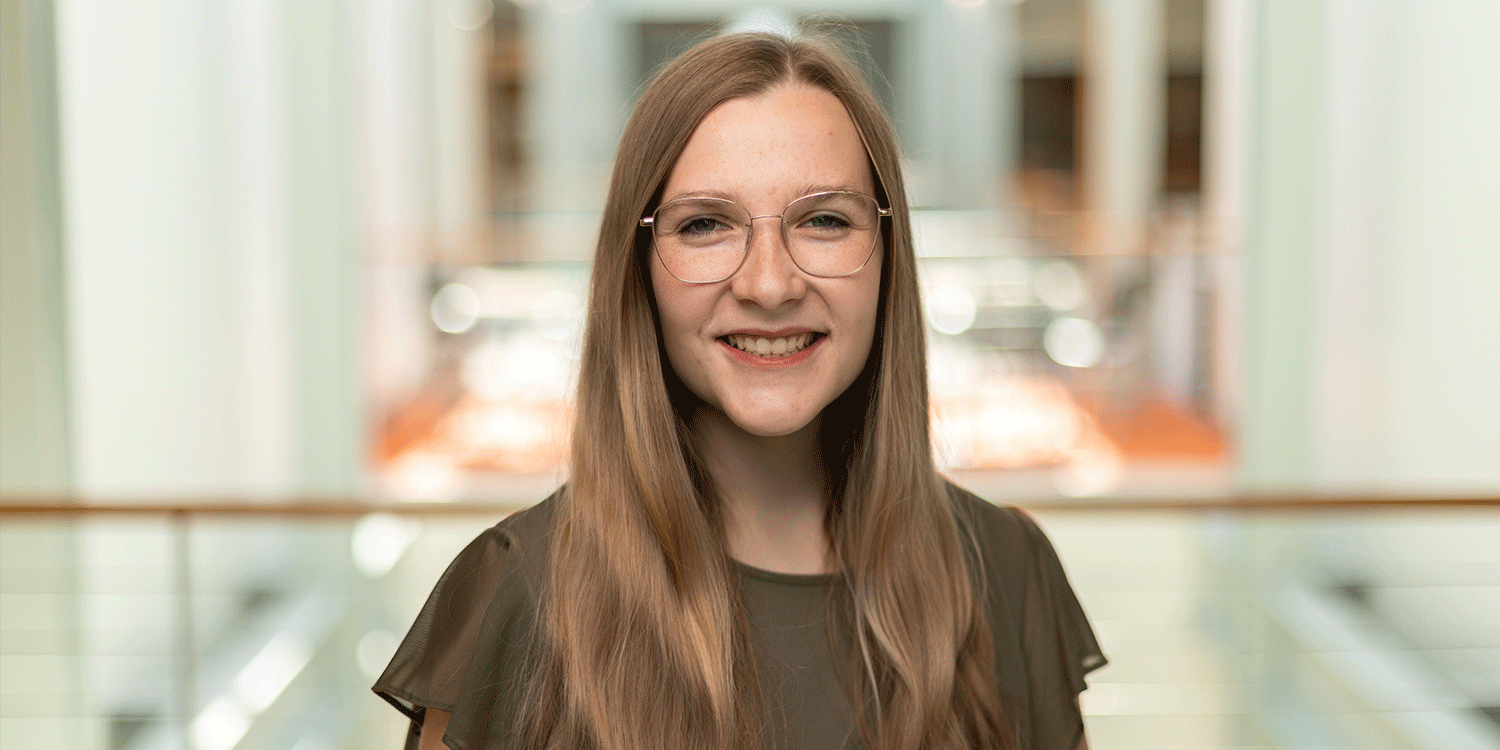Emily Weishaar ’25, psychology, sociology, and criminology, spent her summer deeply engaged in research with Capital’s Summer Scholars Program, focusing on “The Perceived Benefits of the Achieving Baby Care Success (ABC) program at the Ohio Reformatory for Women.” Weishaar’s research aimed to shed light on an overlooked and under researched area of the criminal justice system: prison nursery programs.
“It was interesting when I first heard about them; I instantly wanted to know more. As of May 2022, there were 8 prison nursery programs in the country and Ohio has one located in Marysville. When I was looking at the research, it was very focused on recidivism rates. I was really hoping to hear mothers’ voices to understand the benefits they see with the programs. I wanted to ask, how does the program affect you and your child?” said Weishaar.
Her interest in the ABC program stemmed from a longstanding curiosity about gender disparities within the criminal justice system. Initially, Weishaar planned to interview mothers who had participated in the ABC program. However, due to unforeseen challenges, this goal proved unattainable.
Undeterred, she shifted her focus to interviewing professionals within the criminal justice system, as well as single mothers who could empathize with the struggles of raising a child in challenging circumstances. This pivot allowed her to gain a well-rounded perspective, combining professional insights with personal experiences.
“Some of the major benefits was simply bonding. We always hear skin-to-skin contact is so important right after birth,” said Weishaar. “Most of the benefits came from not having to live through the negatives. These women were able to create early connections with their children. Those connections not only helped the mothers avoid recidivism but helped the children as well. It’s clear the children have better outcomes with their mothers. They’re able to avoid so many of the negatives of going through the foster care system and being separated from their families.”
In her interviews, Weishaar found support for prison nursery programs, along with a personal story about how a family’s life could have been different with this type of program.
“With the criminal justice professionals, the negatives were just seen as the lack of support and what that could mean. One major thing that was brought up was funding. With a program like that, if it’s not consistent it could cause a lot of ebbs and flows in the system and that could be a negative. If a child is used to having certain resources and all of a sudden the funding is not there to support that’s something that’s going to create inconsistently,” said Weishaar.
“One of the women I interviewed, her sister was actually born in a prison and was sent straight to foster care. She didn’t get to meet her until she was in her 40s. She was really great in giving a voice to the opposite of what this is. What it means for a family.”
During her time as a summer scholars, Weishaar worked with her faculty mentor, Elizabeth Klainot-Hess, Ph.D., assistant professor, Sociology and Criminology.
“I think undergraduate research is important at Capital because many students are interested in attending graduate school, and having done a research project makes a graduate school application very strong. I also think it is great because it allows students to pursue a topic they are interested in and go beyond what they would learn in the classroom about that topic,” said Klainot-Hess. “I really enjoyed working with Emily this summer. She had an excellent research proposal and a very ambitious project that I was excited to get involved in.”
After graduation, Weishaar plans on attending grad school on her way to becoming a prison psychologist.
To learn more about the Summer Scholars Program at Capital visit, http://1x9.al10669.com/academics/experiential-learning/undergraduate-research/summer-scholars-program/.
For more information about Sociology and Criminology at Capital visit, http://1x9.al10669.com/academics/criminology-and-sociology/.
